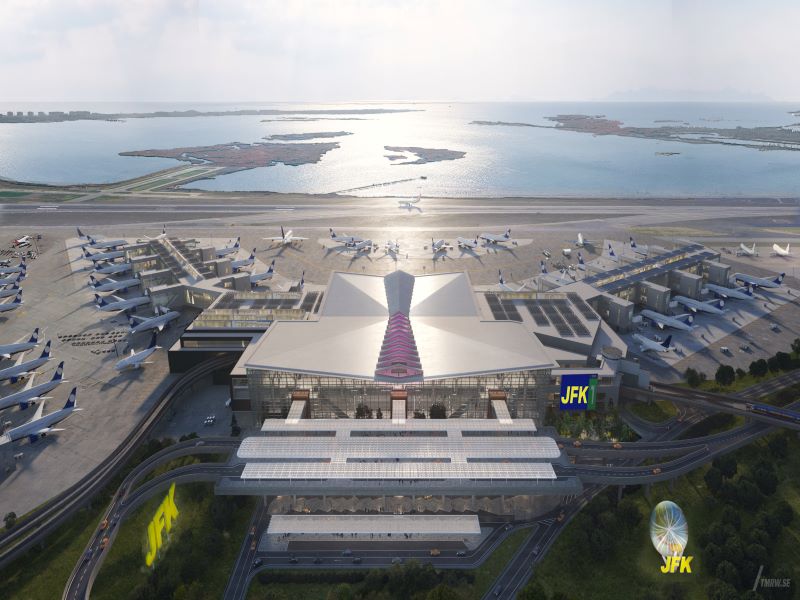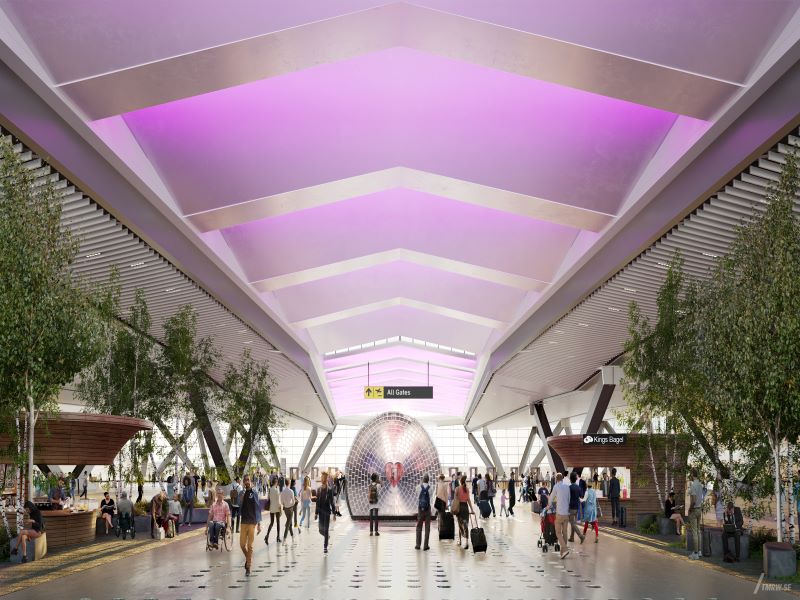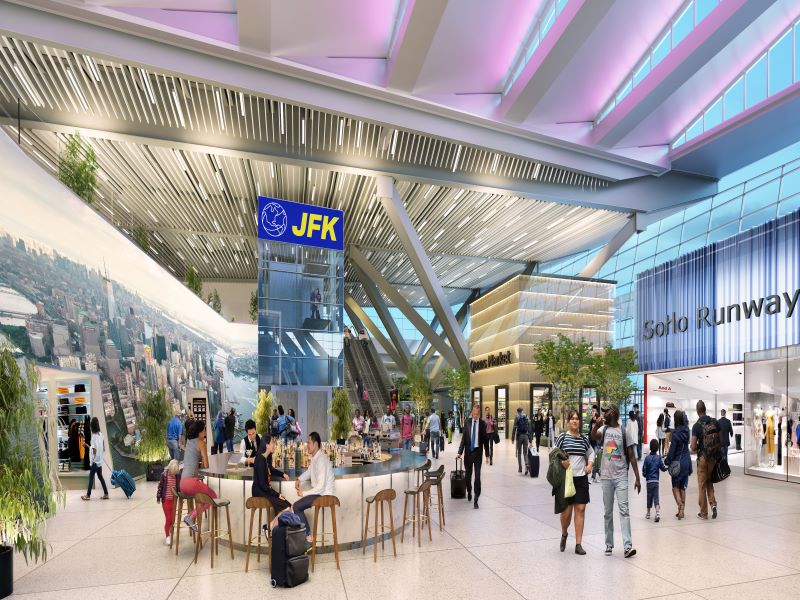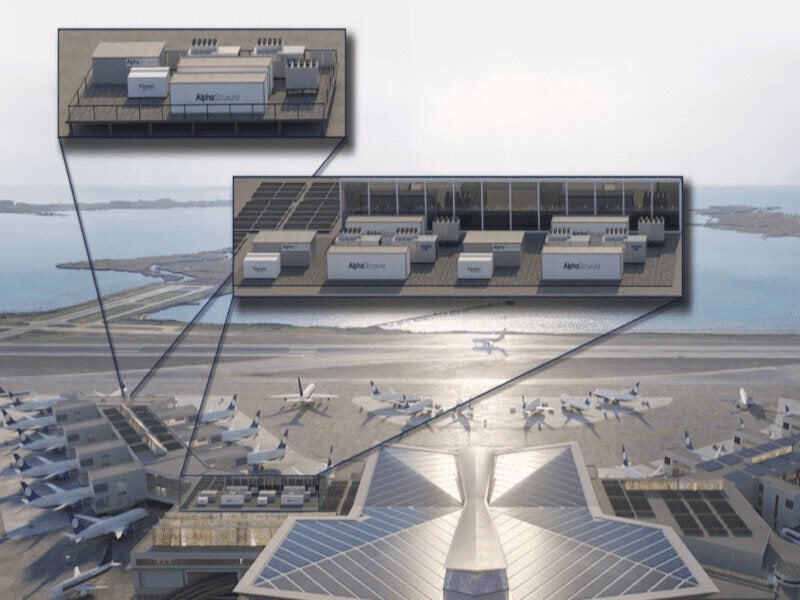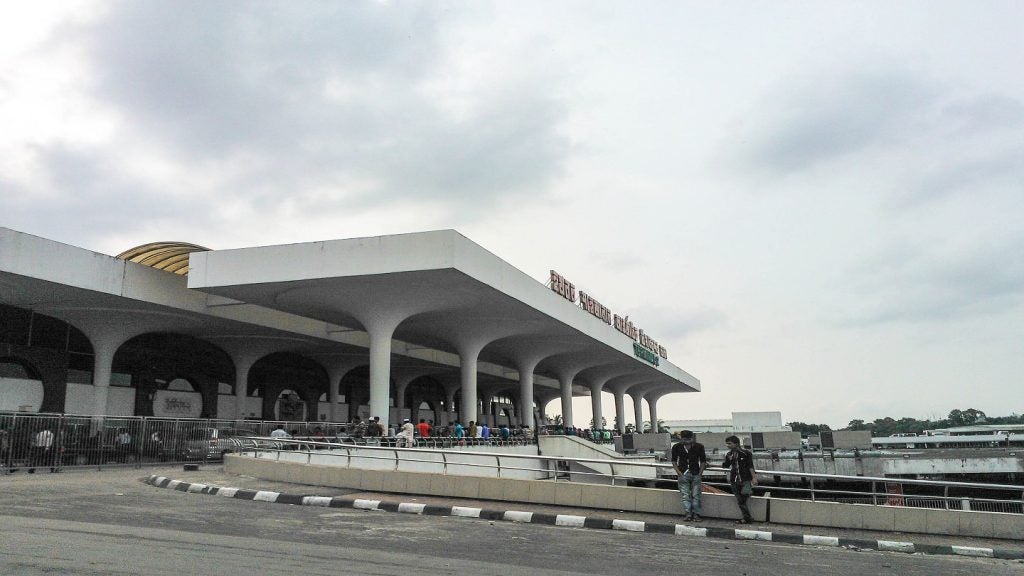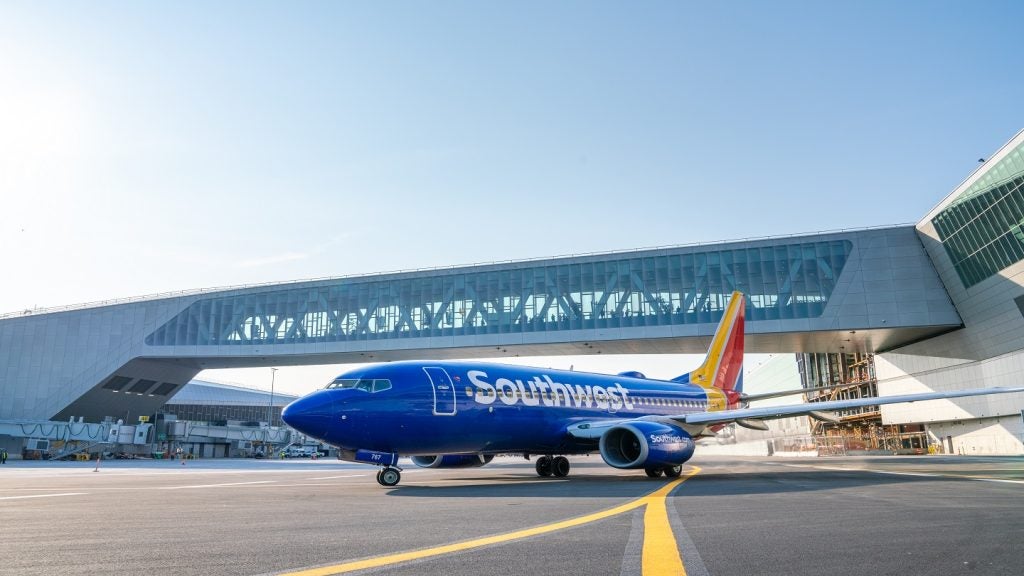New Terminal One (NTO) is a passenger terminal being built at the John F Kennedy (JFK) International Airport in New York, US, as part of wider plans to transform JFK into a world-class airport. NTO will be the biggest terminal at the airport, upon completion.
Originally planned to start in 2020, the $9.5bn terminal project was delayed due to the Covid-19 pandemic.
Construction on the first phase of the NTO commenced with a ground-breaking ceremony in September 2022. The first phase is expected to be opened in June 2026 while the entire project is scheduled for completion in 2030.
The project is estimated to generate more than 10,000 jobs, including over 6,000 construction jobs.
New Terminal One project details
NTO will be constructed on the sites of the existing Terminal 1, the 59-year-old Terminal 2, and the former Terminal 3, which was demolished in 2013. The new terminal will represent the transformation of the outdated Terminal 1.
The 2.4 million square feet terminal will anchor the south side of JFK International Airport.
The terminal will be built in multiple phases, the first of which will be the development of a new arrivals and departures hall and 14 gates. NTO will include a total of 23 new gates.
Port Authority of New York and New Jersey (PANYNJ) will be responsible for improving roads, car parks, and utilities, including a new electric substation.
New Terminal One design, features, and amenities
The terminal will offer New York-inspired dining and retail amenities, as well as lounge and indoor green spaces spanning 120,000ft2.
The check-in and concession spaces will be designed with high ceilings and will allow natural light. The areas will feature modern architectural elements, including art depicting significant landmarks across New York.
The terminal will be installed with the latest technologies in security such as touchless passenger journeys and digital systems, for efficient passenger flow and queue management.
The Transportation Security Administration security lanes will be installed with biometric-based systems and advanced video search analytics. The improved design of the terminal will also allow it to adapt to future technology and regulatory changes.
Passengers can access charging stations and free high-speed Wi-Fi at the terminal.
Disaster recovery system at the New Terminal One
In December 2023, JFK Terminal One Group Association (TOGA) and Ink Innovation, a travel technology provider, collaborated to implement the latter’s Disaster Recovery System (DRS) at the terminal to ensure uninterrupted passenger processing and flight operations even during system failures. TOGA is a limited partnership of three international airlines.
The Ink DRS was previously tested in a pilot project to demonstrate how it could serve as a rapid, scalable, and effective substitute for the manual procedures that are currently employed to manage operational disruptions.
Ink DRS achieved the cold backup flow in a live environment, including flight creation, seat mapping, registrations, special service requests, and allowances according to airline requirements. It also activated DRS service points for check-in and boarding processing, allowing seamless passenger processing and data exchange with airport systems.
The system consistently processed 50 passengers per hour at each check-in point, even during times of high demand, highlighting its processing speed and capacity. Notably, it recorded check-in durations as brief as 30 seconds per passenger and boarding times of merely six seconds.
New Terminal One sustainability features
The terminal will incorporate several sustainability features, including a solar hot water system and an aircraft de-icing fluid recovery system.
Electric-powered ground service equipment, including baggage tractors and belt loaders, will also be available at the terminal.
An 11.3MW microgrid, including a 7MW rooftop solar photovoltaic system with more than 13,000 solar panels, fuel cells, and a battery energy storage system, is planned to be developed at the terminal to provide sustainable, locally generated energy.
The state-of-the-art microgrid will comprise four power islands, with each island featuring power generation, storage, and advanced automation and control facilities. It will enable a 38% reduction in greenhouse gas emissions compared to grid-sourced energy.
Financing the New Terminal One project
The construction of the NTO is privately funded by the NTO consortium, which includes investment company Carlyle, investor and asset management business JLC Infrastructure, infrastructure operator Ferrovial, and insurance and financial services holding company Ullico.
The consortium closed construction debt financing for the project in June 2022. The financing is provided by a group of lenders comprising MUFG Bank, Bank of America, Bank of China, Citibank, HSBC Bank USA, ING Capital, Intesa SanPaolo, KDB Asia, KfW IPEX-Bank, Société Générale, Sumitomo Mitsui Banking, The Bank of Nova Scotia, and The Korea Development Bank.
Contractors involved in New Terminal One
AECOM Tishman and Gensler form the design-build team of the project. AECOM Tishman is a construction company engaged in mixed-use and mega-development projects in the US while Gensler is a global design and architecture company.
SITA, an IT provider based in Switzerland, is collaborating with the design-build team to ensure all systems are tested and ready for use before deployment as part of the Master Systems Integrator (MSI) Alliance. Faith Group was appointed as the Engineer of Record for the MSI packages.
Techno, a construction management and engineering services provider, was chosen to provide construction management services for the design-build team.
AlphaStruxure, an energy service provider and joint venture between Schneider Electric and the Carlyle Group, is responsible for financing, designing, building and operating the grid-independent microgrid for the terminal. Burns Engineering is serving as the owner’s engineer for the project.
McKissack & McKissack, a design and construction business, was selected to provide project management oversight services.
JT Hicks Associates, a construction and engineering services company based in the US, was contracted to provide surveying services.
Local companies A.B. Engineering and ZI Engineering received contracts for structural engineering services.
Developer of retail assets in airports, Unibail-Rodamco-Westfield will serve as the concessions manager and be responsible for handling the dining, retail, duty-free, entertainment, and experiential concepts.
Business consultant Steer has been serving as the project’s lead traffic and business plan advisor since 2017.
The joint venture between airport management and consulting services provider Munich Airport International and the holding company CAG Holdings was appointed to serve as the operating and technical services partner to the NTO consortium.
US-based structural steel fabricator Banker Steel is supplying 33,000 tonnes of fabricated structural steel for the project.
Mitsubishi UFJ Financial Group, a financial services group, served as the financial advisor for the NTO consortium.
Law company Milbank served as the advisor for the group of lenders, who provided construction debt financing for the project.
Other recent developments at JFK International Airport
The PANYNJ signed a long-term ground lease agreement with Aeroterm for the development of a $145m cargo facility at JFK airport in June 2021.
Aeroterm will construct a 32,516m² cargo building, which is expected to be completed by the end of 2023.
The advanced cargo facility will enhance airport cargo handling and storage efficiency. It will also include a temperature-controlled area for handling pharmaceutical products.
Aeroterm contracted Lödige Industries to supply an automated cargo system for the facility. The system will include two elevating transfer vehicles and will be used by Worldwide Flight Services, which handles the majority of the cargo operations at the airport.

